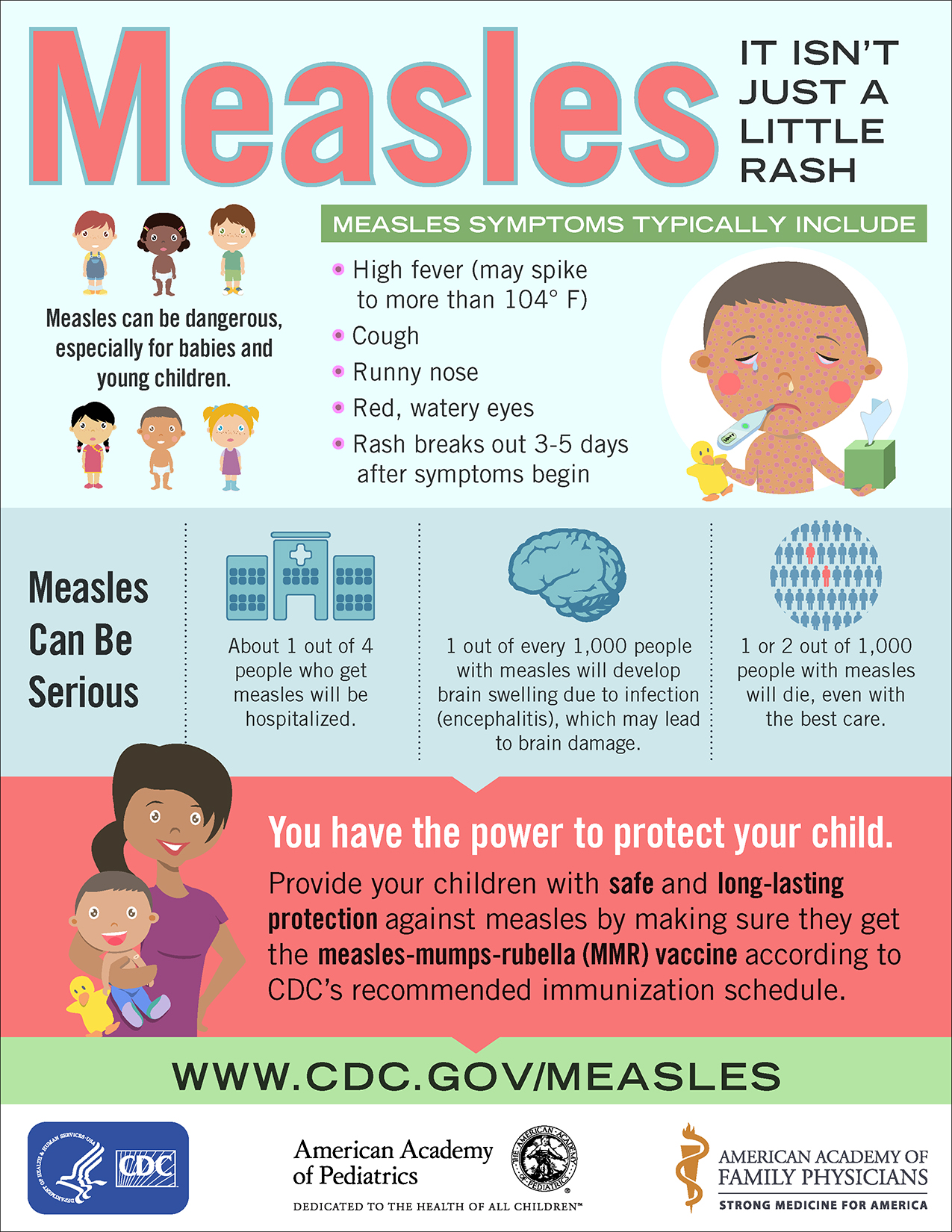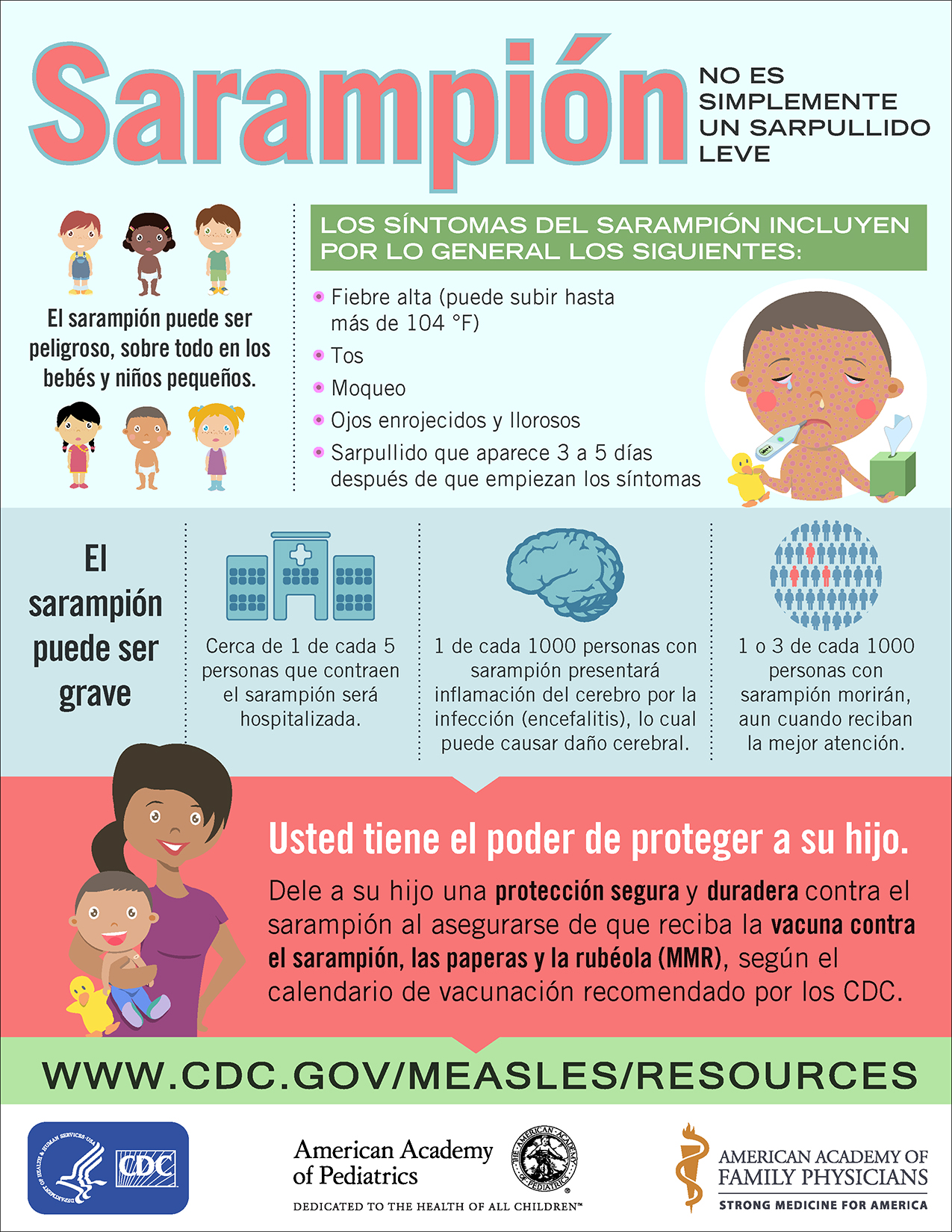Communicable Diseases
Measles
Dallas County Health and Human Services - 2377 N. Stemmons Freeway, Dallas, TX 75207
Telephone: (972) 692-2780
To report a suspected measles case call (214) 819-2004.
Measles cases have been on the rise across Texas, with recent outbreaks reported in multiple counties. Measles is a highly contagious disease that spreads through coughing, sneezing, and close contact with infected individuals. Due to its high transmission rate, even a single case can lead to an outbreak, especially in areas with low vaccination rates. Tragically, Texas has reported the first death of a child from measles, a heartbreaking reminder of how dangerous this disease can be.
Measles can cause fever, cough, runny nose, red eyes, and a rash that spreads over the body. Serious complications can occur, including pneumonia, brain swelling, and even death.
The best way to prevent getting sick is to be immunized against measles. Two doses of the MMR (measles, mumps, rubella) vaccine are highly effective at preventing measles.
Measles is a highly contagious viral infection that commonly causes a rash and fever. Measles can be dangerous, especially for babies and young children under 5. Adults over 20 years of age, pregnant women and people with compromised immune systems are also more likely to suffer from measles complications. Severe complications can include pneumonia (a serious lung infection), encephalitis (swelling of the brain), deafness, and other long-term consequences. In rare cases, measles can be deadly. About 1 in 5 people in the U.S. who get measles will be hospitalized.
- High fever (may spike to more than 104°F)
- Cough
- Runny nose
- Red, watery eyes (conjunctivitis)
- Tiny white spots inside the mouth (Koplik spots)
- Rash of flat red spots that typically starts on the face and spreads to the rest of the body
Symptoms usually appear 7–14 days after exposure. If you or a loved one experiences these symptoms, especially after potential exposure, seek medical care immediately and avoid public places to prevent further spread.
Measles is very contagious and spreads through the air when an infected person coughs or sneezes. You can catch measles just by being in a room where a person with measles has been, up to 2 hours after that person has left. Infected people can spread measles to others four days before they have a measles rash and four days after the rash appears. Someone who has not had the measles-mumps-rubella vaccine (called the MMR vaccine) or a prior infection is highly likely to get measles if they are exposed to the measles virus.
If you have been exposed to someone who has measles, you should immediately call your healthcare provider and let them know. Your healthcare provider can determine if you are immune, and can make special arrangements to evaluate you without putting other patients or medical staff at risk.
If you are not immune to measles, MMR vaccine or a medicine called immune globulin may help reduce your risk of developing measles. Your healthcare provider can advise you about whether these are necessary.
If you are not immune to measles and do not get vaccine or immune globulin, you should stay home and isolate for 21 days to ensure that you do not get others sick.
Yes. The MMR vaccine is very safe and it is effective at preventing measles (as well as mumps and rubella). The Centers for Disease Control and Prevention (CDC) recommends children receive one dose of MMR at 12 to 15 months of age and another at 4 to 6 years. Most children don’t have any side effects from the MMR shot. If side effects do occur, they are usually mild and can include fever, pain or redness where the shot was given, or mild rash.
QUICK LINKS
LOCATIONS
EMPLOYEES
-
You must be on the network to see these links.







